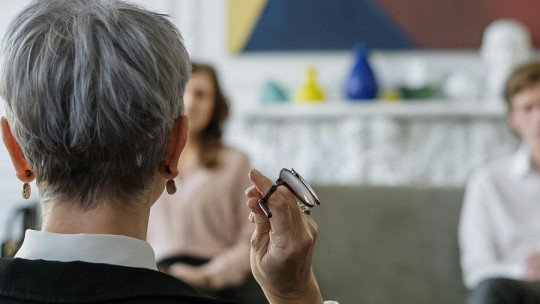A relationship is an experience that directly or indirectly influences practically all aspects of life. Clearly, this is positive, because emotional and physical support is reflected in many aspects of daily life. However, this also means that conflicts in relationships can come from many directions.
In this article We will see what are the main types of conflicts in a relationship, and various forms of intervention used in couples therapy to solve them.
Types of frequent conflicts in relationships
The main types of conflicts treated in couples therapy can be grouped into these categories.
1. Jealousy in the relationship
Jealousy is among the most frequent sources of discomfort in those who experience problems in their relationships, especially among young people. These types of problems are fueled by personal insecurities, the desire to unilaterally control what happens in the relationship, due to gender roles, and other aspects that often act in combination with each other.
2. Lack of time together
Poor organization and time management means that many couples can barely spend a few hours a week in each other’s company. This lack of quality time together is often a problem in itself, and also acts as a catalyst of all the potential factors of discomfort in that relationship.
3. Differences regarding future plans
Although the day-to-day experience of life as a couple is focused on the present, it is inevitable that from time to time we think about the implications of continuing in that long-term relationship, and the way in which that fits with the expectations that each person has about what they want to do with their own life. AND When imbalances are detected in this, anxiety and insecurity appear about whether the relationship has a future
For example, the degree to which one wants to have sons or daughters can sow discord if there are significant differences in each person’s preferences; The same goes for everything related to where you want to live, the level of income you want to have at a certain point in life.
4. Problems in assigning household tasks
These types of conflicts are often based on gender roles : Women tend to feel greater pressure to take care of household chores “by default.” However, these asymmetries can occur in either direction in heterosexual couples, and the discomfort is especially intense when work stress and lack of time to rest are added to this.
5. Lack of trust due to infidelities
The infidelities They almost always give rise to a deep gap in the emotional and coexistence dynamics , generating a couple crisis. The fundamental aspect of these crises is usually the lack of trust in the other, the idea that it is no longer worth continuing to get involved in the relationship.
6. Differences in the degree to which you think about yourself or the relationship
If one of the people clearly tends to think more about themselves than the other In everything related to life as a couple, conflicts are expected to arise. This happens through everyday life; For example, by forgetting relevant aspects that the other person has explained during the meal, by not remembering an anecdote together that was special at the time, etc.
7. Problems in the relationship with the other person’s family members
These types of conflicts with third parties can generate another conflict within the relationship, due to the tension of having to take a position in the face of arguments, family commitments, etc.
8. Taboo topics in the intimate and sexual sphere
Although what is expected in a relationship is trust and intimacy, this does not always reach all aspects of life ; The fear of talking about issues related to sexuality and nudity in front of others can feed insecurities and the habit of avoiding certain topics.
Strategies used in couples therapy
When it comes to helping people solve these types of conflicts, couples therapy has several resources and strategies. These are the most used.
1. Use of discussion management techniques
Arguments don’t have to mean fighting ; They can also be a way to solve previously existing problems, reaching common ground in which the interests of both are respected.
2. Training in assertiveness techniques
Assertiveness helps us not to leave anything important behind and to express how we feel whenever that is important, and despite knowing that this may bother the listener. The key is to achieve a balance between defending one’s own point of view and respecting and empathizing with others.
3. Use of self-registrations
These personal diaries of emotions serve to enhance self-knowledge and learn to better manage your own feelings (and how to channel them).
4. Reorganization of values and priorities
Achieve ordering one’s thoughts and interests It is key to not make our doubts and insecurities hinder the development of the relationship taking into account that there must always be a series of commitments.
5. Training in the expression of positive feelings
This allows everything that makes the relationship a pleasant context to be revealed ; Not only is it important to see positive aspects in others, you also have to let them know without fear of exposing yourself in this way.
6. Detection of problematic thoughts and behaviors
Through joint and individual work, It enables people to detect recurring behavior patterns in time that indicate poor management of expectations and the perception of the other. This is very useful in cases of jealousy, for example.
@professional(2055516, “Are you interested in professional psychological help?”)
Are you looking for psychological assistance to solve relationship problems?
If you are interested in starting a couples therapy process, contact us. In Psychoconsulting We work offering strategies and techniques that allow you to learn new ways of relating, communicating and managing emotions and their impact on emotional bonding and coexistence.
In addition, we work offering individualized psychotherapy to overcome problems such as anxiety disorders, low self-esteem, time management, impulse regulation, and more. You can find us in our office located in Barcelona, or take advantage of the online therapy modality that we offer.









